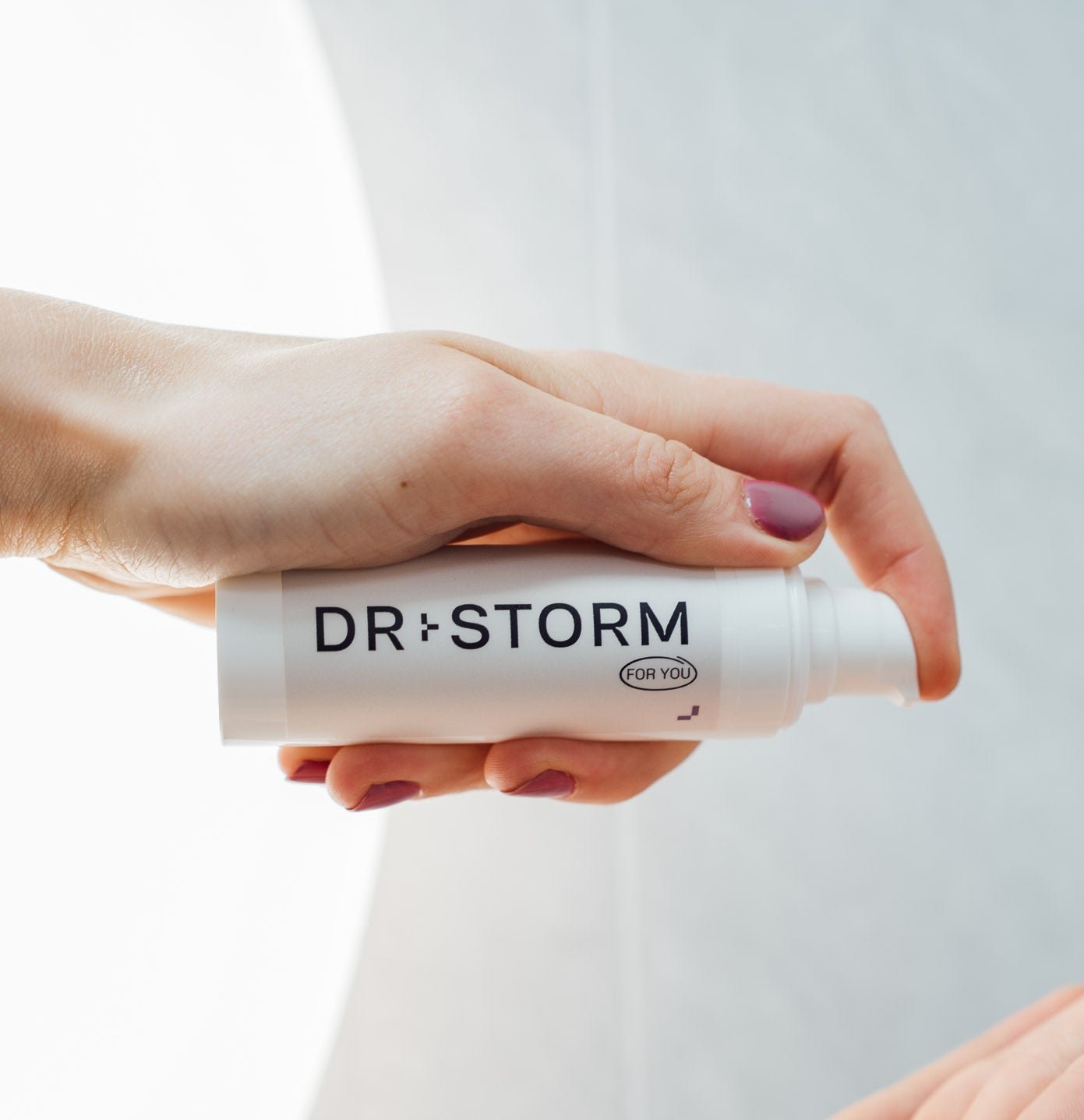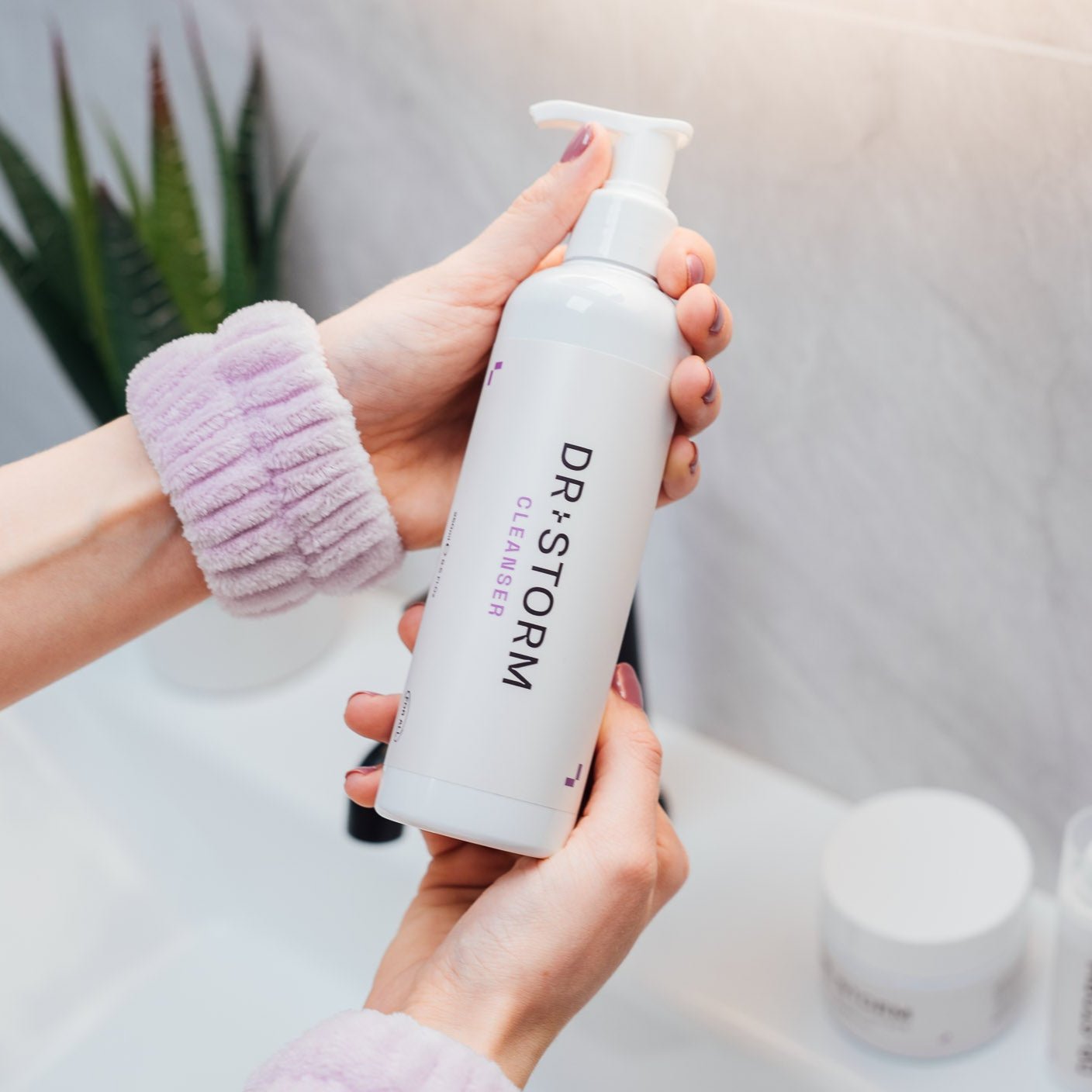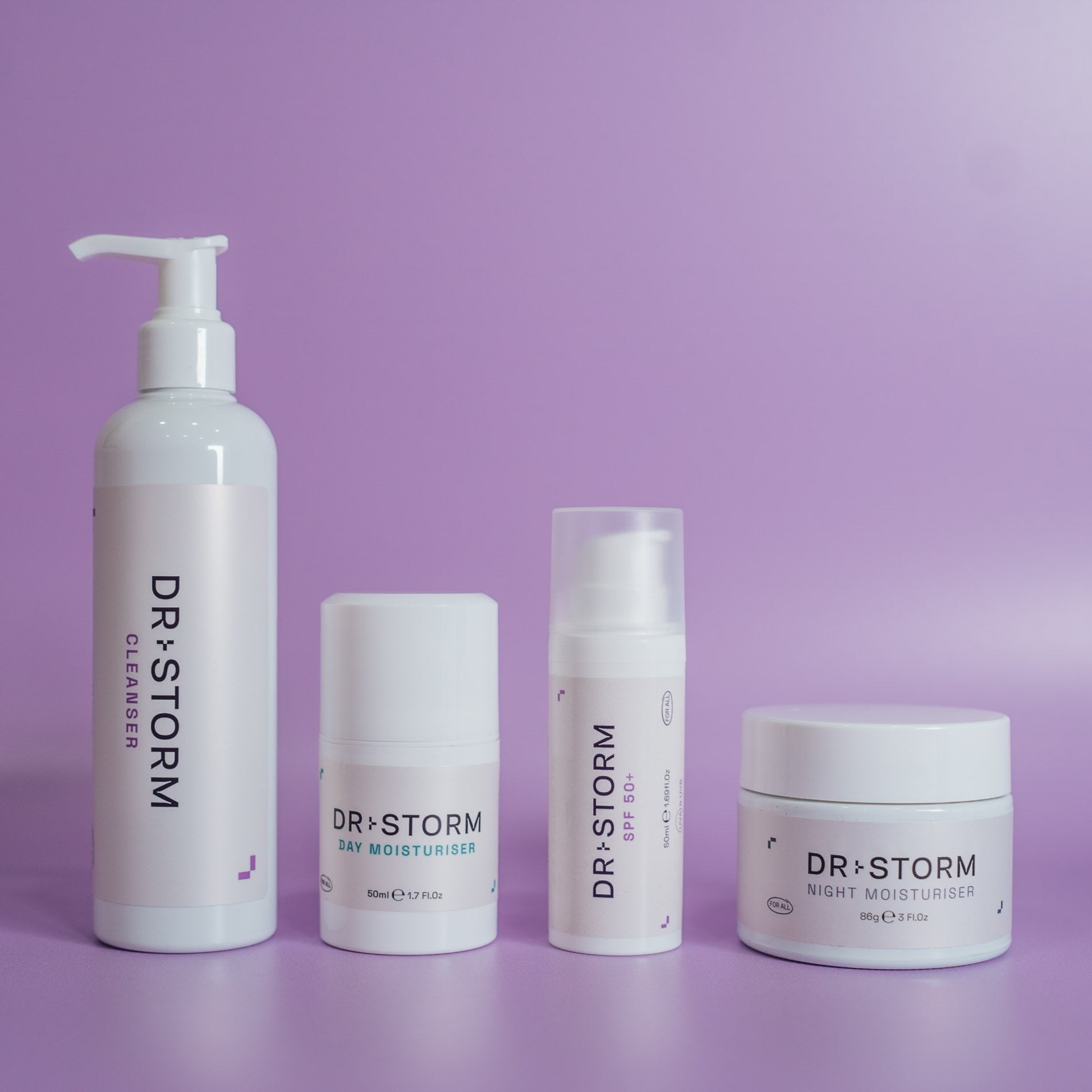Skincare is often marketed as a form of self-care, promising glowing skin and a boost in confidence. But for many, an overcomplicated or high-pressure routine can lead to stress, anxiety, and even harm your mental health. Instead of enhancing your well-being, your skincare habits might be doing the opposite. Let’s examine how and why this happens, and how to create a balanced, science-backed approach to your skincare routine.
The Link Between Skincare and Mental Health
Skincare can positively impact mental health when it’s approached as an intentional, mindful practice. However, when it becomes obsessive or rooted in unattainable expectations, it can have the opposite effect.
“Skin Anxiety” and Emotional Well-Being
Constantly worrying about your skin’s imperfections, obsessing over minor blemishes, or fearing signs of aging are examples of “skin anxiety.” This hyper-focus on perceived flaws can lead to:
-
Reduced self-esteem.
-
Social withdrawal due to feeling self-conscious.
-
Increased stress levels, which ironically worsen skin issues like acne or eczema.
Your skin is an organ that reflects your overall health and well-being. When you’re stressed, your body releases cortisol, a stress hormone that can increase oil production and inflammation in the skin. This vicious cycle often exacerbates the very issues you’re trying to treat, such as breakouts, redness, or irritation.
Social Media’s Role
Platforms like Instagram and TikTok often showcase filtered, airbrushed skin alongside extensive skincare routines. These images and tips create unrealistic standards that leave many feeling inadequate. Beyond filters, influencers often have access to professional treatments and lighting that are unattainable for the average person. This constant exposure can make you feel as though your natural skin is flawed or unhealthy.
Adding to this, viral skincare trends can create confusion about what’s truly effective. Misinformation and gimmicks—like using unproven natural remedies or overloading on active ingredients—can result in unnecessary damage to your skin barrier.
How to Recognise the Problem
It’s time to reassess your routine if you notice any of the following warning signs:
Behavioural Red Flags
-
Constantly switching products: Impatience leads you to change products before giving them time to work. Most effective skincare takes weeks to months to show results.
-
Over-researching and overloading: Spending hours dissecting every ingredient or following influencer-led trends without understanding their relevance to your skin.
-
Mirror checking or skin picking: Frequently examining or touching your face out of frustration or stress. This habit not only affects your mental health but can also lead to scarring or infection.
-
Spending excessively: Feeling guilt or stress over the financial burden of skincare products.
Emotional Signs
-
Feeling overwhelmed by the complexity of your routine.
-
Experiencing anxiety if you miss a step or forget to apply a product.
-
Becoming overly critical of your skin’s natural appearance, such as its texture or pores.
Recognising these signs early can help you take actionable steps toward creating a healthier approach to your skincare routine.
Common Skincare Pitfalls That Impact Mental Health
Overloading Products
The skincare industry promotes the idea that more is better, but this is rarely true. Overusing actives like retinol, acids, or exfoliants can lead to irritation, redness, and a compromised skin barrier. This often results in frustration and even more product experimentation.
When you overload your skin with too many ingredients, you risk causing an inflammatory response. Ingredients like salicylic acid, benzoyl peroxide, or AHAs are powerful but should be used sparingly and only as needed. A compromised skin barrier takes weeks to months to repair, setting back your progress significantly.
Solution: Start with the essentials:
For those looking to achieve long-term results, consider prescription-strength options like tretinoin, which are scientifically proven to improve skin texture and reduce acne. These treatments, available through our personalised skincare service, often require 3-6 months of consistent use to show optimal results.
Comparing to Others
Constant comparison to influencers or peers with “perfect” skin can lead to feelings of inadequacy. Remember, most images are filtered, edited, or carefully curated. Additionally, many influencers have access to professional treatments like lasers, injectables, or chemical peels, which significantly affect skin’s appearance.
Solution: Focus on your skin’s unique needs, and set realistic goals for its health rather than perfection. Celebrate small victories, like reduced irritation or fewer breakouts, instead of chasing an unattainable standard.
Ignoring Professional Advice
DIY skincare and influencer recommendations might not suit your skin type or address your concerns. Following unverified trends can cause more harm than good.
Unproven remedies like using DIY facemasks or excessive use of active ingredients can lead to breakouts, clogged pores, or sensitivity. Without professional guidance, you may inadvertently worsen your skin issues.
Solution: Consult a medical professional that you trust for personalised advice tailored to your skin’s needs. Professionals can assess your skin type and concerns, recommend evidence-based treatments, and eliminate the guesswork.
Steps to Build a Healthy Relationship with Skincare
Simplify Your Routine
A simple routine is often the most effective. Dermatology-backed routines emphasise consistency over complexity. Stick to a few steps and prioritise quality, evidence-based products over quantity. A minimalist approach also saves you time, money, and mental energy.
Shift Expectations
Healthy skin isn’t flawless skin. Real skin has pores, texture, and occasional breakouts. Set realistic timelines for improvement—for instance, acne treatment may take 2-3 months to show significant results.
Focus on Consistency Over Perfection
Sunscreen use is a great example. Applying SPF daily, even if you skip a step in your routine, will do more for your skin in the long run than any single product. Consistency, not perfection, yields results.
Take Care of the Whole Self
Skin health isn’t just about what you apply to your face. Factors like sleep, hydration, a balanced diet, and stress management play critical roles in maintaining radiant skin.
-
Diet: A generally healthy diet including nutrients like omega-3 fatty acids, vitamins C and E, and antioxidants can support skin health.
-
Stress Management: Practices like meditation, exercise, or journaling can reduce cortisol levels, benefiting both your mental health and skin.
Embrace Skin Positivity
Learn to appreciate your skin for what it does, not just how it looks. Your skin acts as a protective barrier, regulates temperature, and helps you feel sensations. Shifting your mindset from criticism to gratitude can make a significant difference in how you perceive yourself.
When to Seek Professional Help
If your skincare routine is causing distress or you’re struggling with persistent issues like severe acne, rosacea, or eczema, it’s time to consult a dermatologist. Professional advice can:
-
Provide clarity and eliminate the guesswork.
-
Tailor treatments to your specific skin type and concerns.
-
Save you time, money, and frustration in the long run.
Medical professionals can also offer advanced treatments, such as prescription-strength topicals or laser therapy which can address concerns more effectively than over-the-counter products.
Conclusion
Your skincare routine should support your well-being, not add stress to your life. Simplify your approach, set realistic expectations, and focus on the health of your skin rather than chasing unattainable perfection. If you’re feeling overwhelmed, don’t hesitate to seek professional advice—a dermatologist can help you find the balance that works for you.
Take Action: Reflect on your current skincare habits. Are they enhancing your life, or are they becoming a source of stress? Remember, healthy skin starts with healthy choices, not unnecessary pressure.
By embracing simplicity, consistency, and professional guidance, you can create a routine that nurtures both your skin and mental health. Treat your skincare as a form of care, not a chore, and let it empower you to feel confident in your skin every day.







